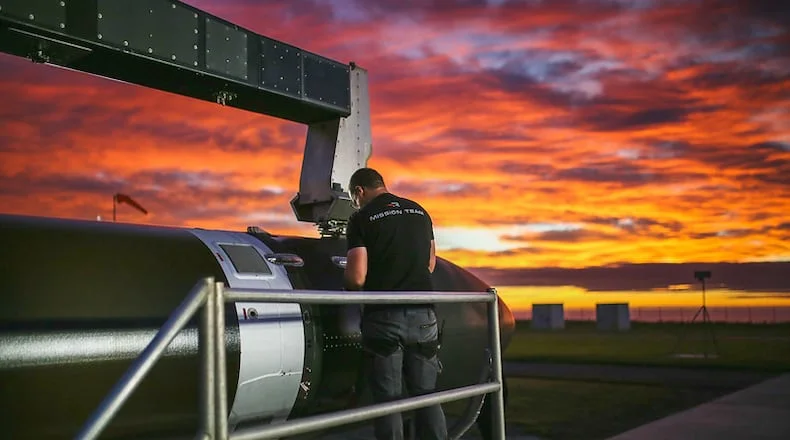
Rocket Lab’s Neutron Rocket Set to Revolutionize Space Cargo Delivery with US Air Force Partnership
Rocket Lab's Neutron rocket is poised to reshape the future of space cargo delivery, thanks to a new collaboration with the U.S. Air Force Research Laboratory (AFRL). This partnership aims to test the reusable rocket's capabilities for rapid and cost-effective point-to-point transportation, potentially revolutionizing both commercial and military logistics.
The AFRL has contracted Rocket Lab to conduct a "rocket cargo survivability experiment" under the Rocket Experimentation for Global Agile Logistics (REGAL) initiative. This experiment will involve the Neutron rocket re-entering Earth’s atmosphere, demonstrating its re-entry capability, a critical factor for reusable rockets designed to deliver cargo globally.

Dan Brown, principal aerospace engineer and rocket cargo program manager for AFRL, highlights the potential benefits of reusable rockets: "There are cases where having the speed and capacity of a rocket is advantageous both for the commercial and the DOD (Department of Defense) side." While acknowledging that rockets won't replace traditional cargo methods entirely, Brown emphasizes that their speed and capacity offer unique advantages, particularly for time-sensitive or high-priority deliveries.
Neutron, a medium-lift reusable launch vehicle, is designed to carry up to 13,000 kg (over 28,600 pounds) to low Earth orbit. Rocket Lab founder and CEO Peter Beck notes that this partnership demonstrates a high degree of confidence by the DOD in Neutron's capabilities: "Neutron is a powerful new launch option that will set a new standard for performance, affordability, and reliability for government and commercial space users in medium launch."

Testing is already underway, with Rocket Lab releasing video of upper-stage qualification tests, showcasing the rocket's "hungry hippo" payload fairing mechanism and fins. The company is aiming for a debut launch of Neutron in late 2025, with contracted launches, including the AFRL mission, to commence in 2026.
The REGAL program, also known as the Rocket Cargo program, reflects the Department of Defense's growing interest in leveraging commercial space capabilities for agile global logistics. It aims to explore the feasibility of using rockets for rapid delivery of aircraft-sized payloads for urgent humanitarian assistance, disaster response, and other critical missions.
Rocket Lab's commitment to innovation extends beyond Neutron. While initially exploring reusability for its smaller Electron rocket, the company has prioritized Neutron due to its greater potential impact. As Beck explained, "Obviously with Neutron at a sticker price of $55 million, it’s a much bigger impact to get that back versus a rocket with a price of $8.5 million."
The partnership between Rocket Lab and the U.S. Air Force marks a significant step towards realizing the potential of reusable rockets for global cargo delivery. As Neutron progresses towards its debut launch, the space industry watches with anticipation, eager to witness the impact this innovative technology will have on the future of logistics and space exploration.
What are your thoughts on the potential of reusable rockets for cargo delivery? Share your opinions in the comments below!